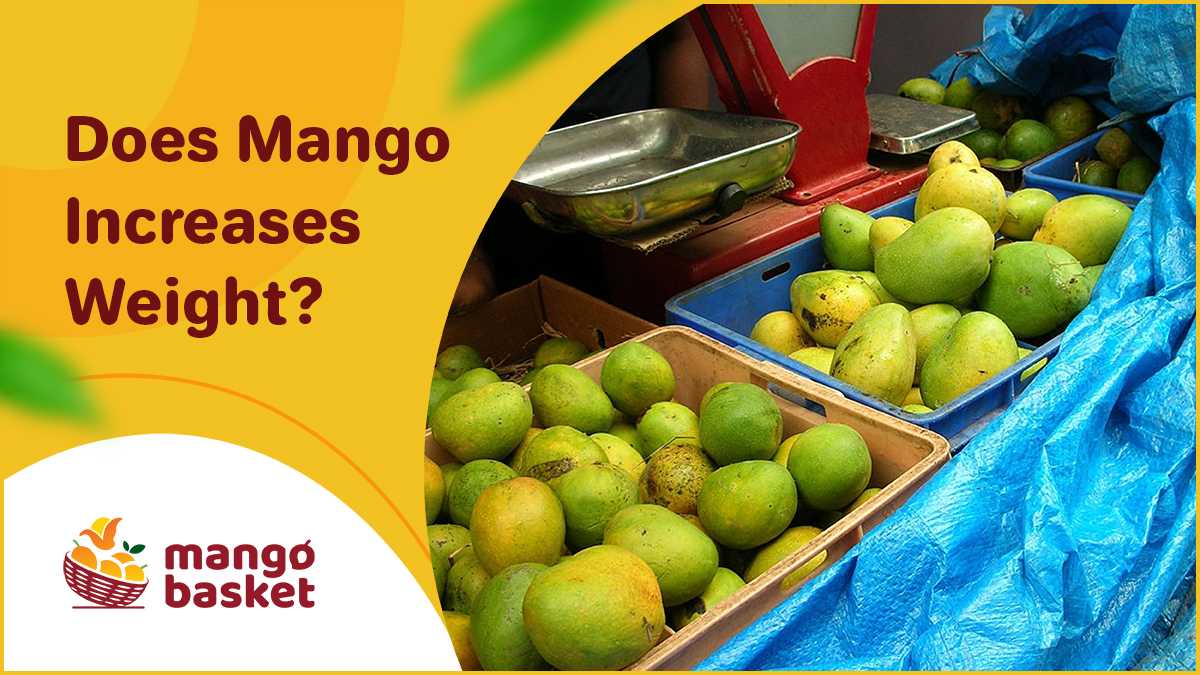Does Mango Increases Weight?

Every season has its own fruit delicacies to offer, and summers are famous for their mangoes and watermelons. Well, it’s obvious that they both are addictive, and if you are health conscious, then you’ll have one question in mind: whether they’ll increase your weight or not?
So, to know exactly what they do, you’ll need to understand that there are a number of factors that can either make you gain weight or lose weight along with mango.
Well, mangoes were an exciting part of our childhood. They are tropical fruits known as the King of Fruits. The best days were when all friends and cousins would grab all mangoes and eat them raw with salt and chilli powder or bite the ripe pulpy ones. Mangoes are native to South Asia with India, China, and Thailand being the leading producers and exporters globally.
Besides being one of the most delicious fruits in the world, they are very healthy and packed with a lot of vitamins and nutrients inside their yellow veil. They are the best-suited candidate to be named the king of fruits. Well, let’s see what exactly they do with our body.
Does Mango Increases Weight?
Does mango make you fat?
There is a fear settling in people these days that mangoes make you gain weight. This has slightly affected the public appeal and awe for mangoes. However, these claims are without any scientific backing.
Experts say that mangoes contain zero fat, cholesterol, and salts. At the same time, they are great supplements for the scorchy summer heat and also provide required nutrients in sufficient amounts for our body. But this does not mean that you can eat as many mangoes as you want in a day.
Eating anything in excess can lead to adipose tissue hoarding in your body, making you look fat. The same applies to mangoes and eating more calories than what your body requires will cause you to gain weight. So again, the claims don’t have scientific proof to it, and managing the number of mangoes you eat is important, the same as any other food item.
Mangoes and weight loss
On the bright side, studies have shown that mangoes can help you lose weight when consumed with respect to a specific calorie limit. Mangoes are rich in vitamins and essential minerals.
The important ones are vitamin C, A, iron, copper, and potassium. Any food item with high sugar content acts as an energy source, the same way mangoes provide an energy boost to your day and help you stay active for longer time durations.
Keep it in your mind that it is important to regularly check the quantity you consume as high sugar content over a considerable time period can lead to diabetes. In a short time period, excessive mango intake can cause indigestion as the fibres in the fruit can clog the intestines.
Eating mango before a workout
As we mentioned earlier, mangoes provide an energy boost to individuals because of their high sugar content. An average-sized mango can provide around 150 calories of energy with some carbohydrates and proteins along with it. The fat content is either zero or can be considered negligible.
It is suggested to have a mango around half an hour before you begin your workout. This time is sufficient for mango to digest and provide the calories required for the exercises. This, in turn, keeps the individual energetic and fresh at the beginning of the workout session.
Avoid Artificially Ripen Mangoes
Mangoes are artificially ripened using arsenic and phosphorus hydride. These chemicals can be poisonous and can cause vomiting, diarrhoea and burning sensation to the chest and abdomen.
Consumption of artificially ripened mangoes will upset the stomach. They cause damage to the mucosal tissue in the stomach and cause interruption to the intestine functions. If exposed to these harmful chemicals for a longer duration, it can lead to peptic ulcers.
Final Words
Well, to conclude the blog post, we’ll say that mangoes are good for your health and they offer you a lot of benefits for your body and skin. When consumed in limited amounts, it is definitely safe for you. Prevent eating artificially ripened mangoes and stick to mangoes that are ripened naturally. Eating mangoes will help you lose weight and provide energy as well. Eating anything in more quantities is not good for your body.







Leave a Reply